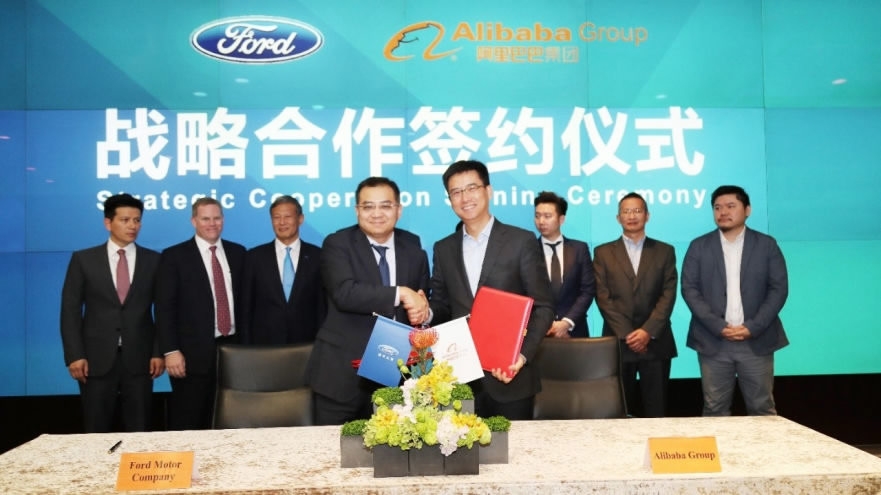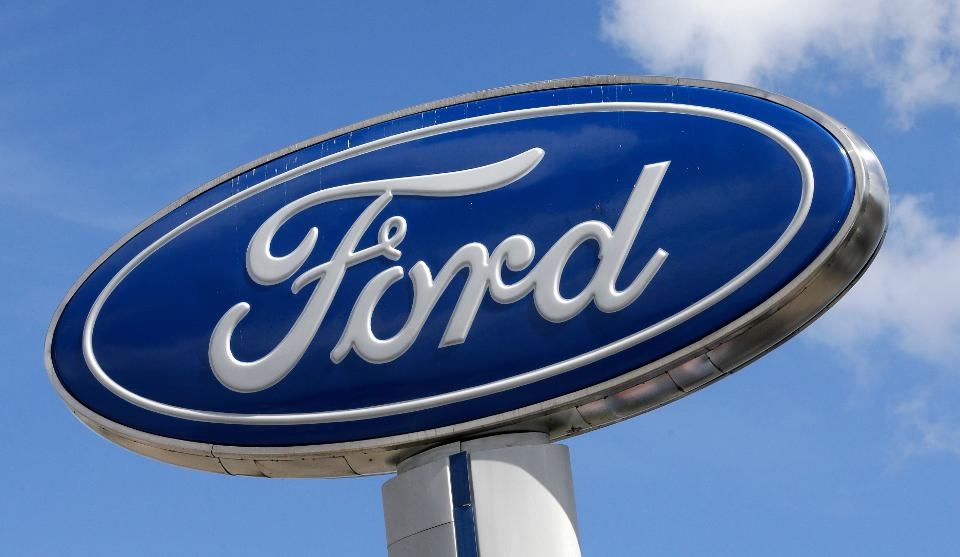
Business
15:54, 11-Dec-2017
Ford to team up with Alibaba in search for new opportunities
Zhao Junzhu

Ford will sell cars directly to customers in China on Alibaba’s online platform after signing a strategic cooperation agreement with Alibaba Group Holding Ltd. in Hangzhou, east China's Zhejiang Province, last Thursday.
In the search for new retail opportunities, Alibaba Group Holding Ltd signed a deal with Ford Motor Co., giving the two companies chances to jointly explore in areas like cloud computing, connectivity and retail chains, digital marketing and artificial intelligence.
It is an opportunity for Ford to sell its cars on Alibaba’s online retail platform, Tmall. In the statement, Alibaba said that “the agreement aims to explore new ways to redefine how consumers purchase and own their vehicles, as well as how to leverage digital channels to identify new retail opportunities,” according to Reuters.
In addition to cars selling strategy, Tmall and Ford will join hands to test a concept store called “Auto Vending Machine.” The new-style store might be a chance for Ford to lobby the lawmaker in the US to permit automakers to directly sell their vehicles online.

Photo via AP
Photo via AP
Automakers in most states of the US have to sell their cars through dealerships. Yet, automakers soared victories in their battles to sell cars directly to customers in recent years. Electric car maker Tesla defeated the local car dealer association, the Missouri Automobile Dealers Association (MADA), in Missouri court in December 2017.
In this commitment, the Ford is going to introduce 50 new vehicles in China in the next eight years. However, there are still lots of concerns about this decision.
Ford faces a sales challenge in China. In the first ten months of 2017, Ford’s selling performance dropped five percent compared to the same period in 2016. In contrast, General Motors Co., Ford’s rival, has seen an increase of 2.2 percent on its sales amount.
Bryce Hoffman, an American strategic advisor and management consultant, criticized that Ford needs to produce the best vehicles for each major market segment, instead of adding more vehicles to the lineup. “When Fords vehicles failed to achieve the desired increase in sales, the company would introduce another one to immediately to replace the original one due to the fear of losing existing customers and the market share,” according to Hoffman.

SITEMAP
Copyright © 2018 CGTN. Beijing ICP prepared NO.16065310-3
Copyright © 2018 CGTN. Beijing ICP prepared NO.16065310-3